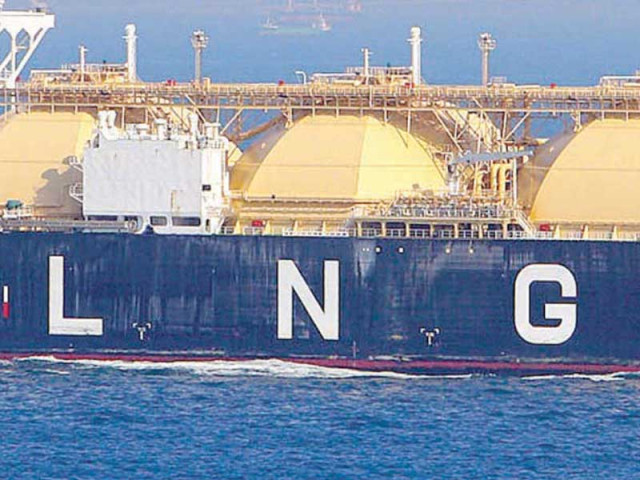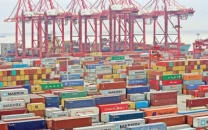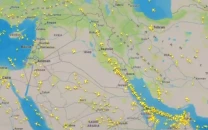Pakistan asks India to remove duties on LNG export
Says it will bring price down to $16 from the $21, sought by India.

Pakistan has been attempting to import LNG from different sources. PHOTO: FILE
As Delhi refuses to budge on the issue of prices, Pakistan is now asking India to permit the duty-free export of liquefied natural gas (LNG) to make the fuel price competitive.
“We have asked India to exempt LNG export from taxes, which may bring its price down to $16 per mmbtu, but India has not yet given any assurance,” a source quoted officials as saying.
During recent talks held in Pakistan, India had sought $21 per million British thermal units (mmbtu) for LNG export, including taxes applicable on the fuel in India, sources say.
Pakistan has been attempting to import LNG from different sources, including the Sui Southern Gas Company’s integrated LNG import project and imports from gas-rich Qatar.

The Iran-Pakistan pipeline project, however, looks to be most viable and price competitive, as it will bring the price of natural gas to $11 per mmbtu, if crude oil price stands at $100 per barrel in the international market.
The price demanded by India is higher than that quoted by Qatar ($17.4) and private suppliers ($17.7-$18.1) for the SSGC project. Earlier, in January 2011, a Dutch firm had offered to supply LNG at $11, but the project did not go ahead and landed in the Supreme Court, forcing the then Pakistan Peoples Party-led coalition government to scrap the plan.
The project, called the Mashal LNG Import Project, was the most viable for bringing cheap gas to the country; however, it fell victim to controversy, with the Economic Coordination Committee later calling for reissuing the tender for the project.
If India and Pakistan go ahead with the gas supply programme, Delhi will have to lay a 60 kilometre (km) pipeline from Bhatinda to the Wagah border, whereas Pakistan will build a 30km pipeline to inject the gas into the pipeline network of Sui Northern Gas Pipelines Limited.
A senior government official said Pakistan would import 200 million cubic feet per day (mmcfd) of LNG initially, with the possibility of raising its demand in the long run. However, he said that LNG import from India may not be feasible in the face of the higher prices sought by Delhi.

Though India had inked a supply agreement with Qatar back in 2004, Pakistan had tried and failed to secure a similar deal way back in 1991, the official said.
During its five-year term, the PPP government tried to revive the Qatar LNG project, but failed to convince Doha, which told Islamabad to negotiate and strike a deal with US firm Conocophilips, which operates its northern fields. Qatar even made a revised price offer as the PPP government approached the end of its tenure.
The cabinet, however, did not take a decision and left the matter to be decided by the next government.
According to the proposal placed before the cabinet, Qatar quoted a price of $17.437 per mmbtu, a 0.5% discount over its previous offer of $18.002 per mmbtu, which would lead to $1 billion in savings over the 20-year life of the project.
The price, however, does not include the capital cost of building an LNG terminal and other charges, import expenses and re-gasification, wastage and shipping costs. These additional costs will add about $2.084 to the quoted price.
In the tender for SSGC’s gas import project, Pakistan Gas Port had quoted a price of $17.7074 per mmbtu, while Global Energy International had offered a rate of $18.16 per mmbtu. Engro’s wholly-owned subsidiary Elengy Terminal Pakistan submitted a formula instead of a base price. The price also covered the cost of setting up a terminal to handle imports.
“If the government reaches a deal with Qatar at the revised price, Pakistan will be paying annually an extra $3.5 billion than it will pay to private suppliers that participated in SSGC’s LNG tender,” the government official said.
Published in The Express Tribune, June 18th, 2013.
Like Business on Facebook to stay informed and join in the conversation.



















COMMENTS
Comments are moderated and generally will be posted if they are on-topic and not abusive.
For more information, please see our Comments FAQ